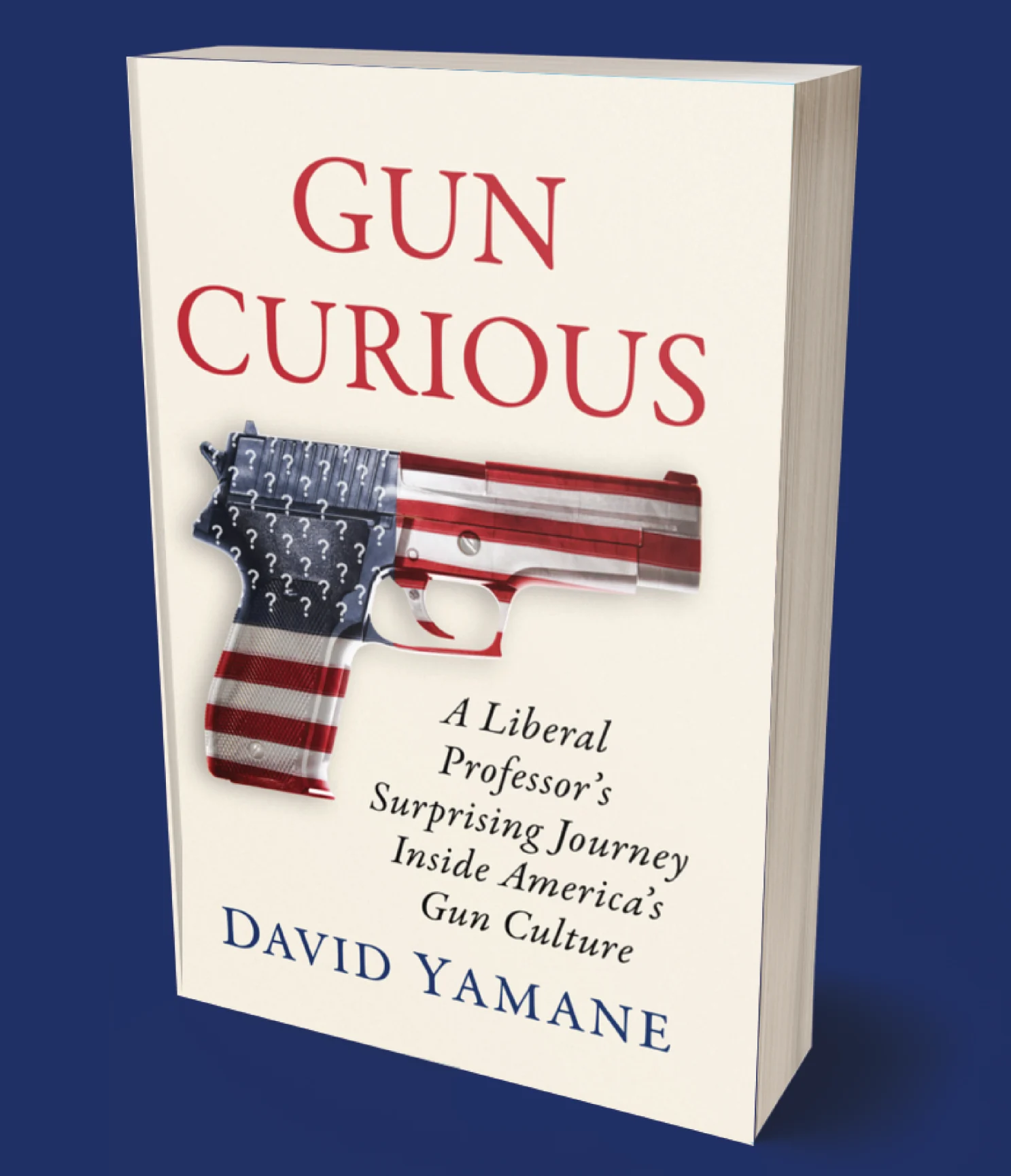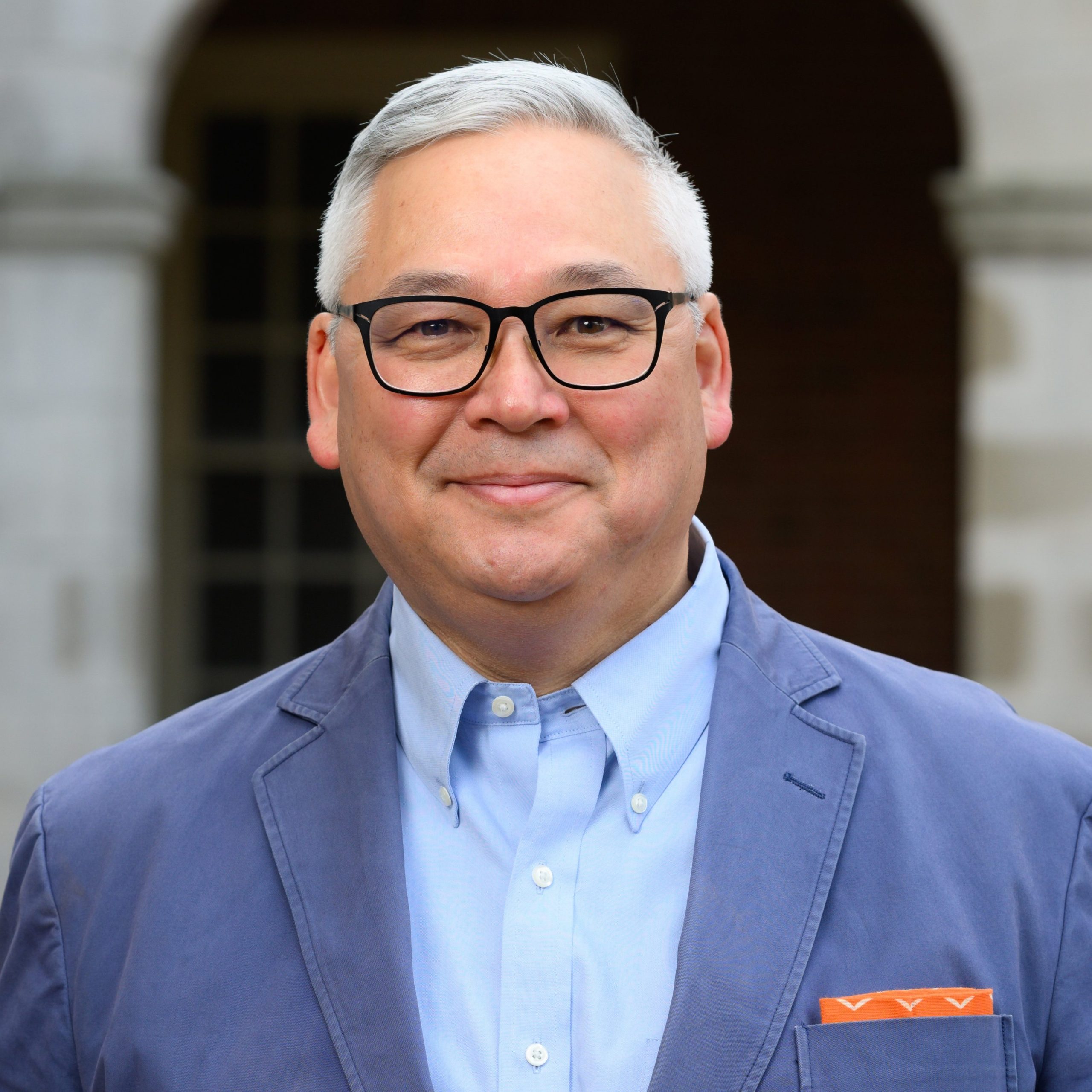Behind the Book: Q&A with Dr. David Yamane
By Erin Marlow, Communications Specialist in the Office of the Dean of the College
Dr. David Yamane, Professor of Sociology, recently published his book, Gun Curious: A Liberal Professor’s Surprising Journey Inside America’s Gun Culture. The book, published with McFarland Press in June 2024, explores the controversial landscape of guns in America from a sociological point of view, offering a perspective that considers firearm ownership as normative behavior. Dr. Yamane’s work dives into his own experiences as both a liberal social scientist and later-in-life gun owner, providing a model of civil discourse that is fueled by curiosity and insight instead of animosity.
Dr. Yamane spoke with the Dean’s Office about his work and the ways in which his scholarship extends beyond the classroom.
What inspired you to write this book?
An academic midlife crisis back in 2011 led me to pivot from the study of religion to the sociology of guns. I had managed most of my life to avoid guns, but they were appearing on my radar more and more at the time. I saw billboards for gun ranges, advertisements for gun shows, and TV shows centered on competition shooting. I also met more and more people who were gun owners – tech and marketing professionals I played tennis with, my real estate agent, my future wife. Encountering something so foreign to me stoked the curiosity that is at the core of the sociological enterprise. For more than a decade, I pursued that curiosity by journeying deeper and deeper inside American gun culture, both as a participant and observer. Gun Curious reports on that journey.
What was a major challenge that you faced in your research?
A major challenge? I have had many major challenges in studying guns! In the first place, the field of gun studies is dominated by those who focus on crime, injury, and death. There is no sociology of guns that takes firearm ownership to be normative as opposed to deviant behavior. So, I have taken the road much less traveled, and it can be a solitary experience. Second, I had to convince those involved in gun culture to trust me as a liberal social scientist to tell their story fairly and honestly. Given the negative evaluations social scientists often have of gun owners, I understood this concern and worked hard to earn that trust. I hope Gun Curious repays it. Third, I have had to contend with gatekeeping liberal-cultured despisers of guns. I felt this most acutely when 30+ publishers rejected the book proposal my superstar literary agent shopped back in 2022 and 2023. It continues to this day with media disinterest in the calm, civil conversation-based alternative I propose in Gun Curious to our paralyzing national argument about guns, including being shadow-banned recently by the NPR affiliate housed on our own campus, WFDD.
What would you say is your project’s unique contribution to the field? Larger society?
I uniquely begin with the proposition that guns are normal and normal people use guns. Consequently, my work explains why guns make sense to those who own them in a way that no other scholars do. In contrast to the dominant approaches in the field of gun studies, I show there is more to guns than criminal violence, injury, and death; more to gun owners than straight white men; and more to gun culture than democracy-destroying right-wing politics. Beyond the narrow world of gun scholarship, I bring my ideas to the public to lower the heat on our country’s inflamed arguments about firearms and model the civil discussions we desperately need right now. In the spirit of Pro Humanitate, I reach beyond the walls of the academy through my “Light Over Heat” YouTube channel; my long-running blog on gun culture; a virtual book club on guns; and a public webinar on guns that I offered to 600+ people last spring.
How do you involve students in your research? How do you bring your research into the classroom?
I am completing my 20th year at Wake Forest and am as compelled as ever by the Teacher-Scholar ideal.
I have had countless students contribute to my research on guns or do their own work inspired by mine. These efforts have led to publications three times with: Sebastian Ivory (‘17), Riley Satterwhite (‘20), and my oldest son, Paul (‘16).
This fall, for the 10th time in the past 10 years, I am offering my Sociology of Guns seminar (SOC 346). The syllabus embodies the fundamental thesis that orients my research: guns are normal and normal people use guns. The course is nationally recognized for the field trip we take to the gun range on the first day of class and the opportunity (but not requirement) that students have to shoot a .22-caliber pistol, a 9mm pistol, and an AR-15-style rifle. The course builds on this firsthand experience of guns by exploring the multifaceted role they play historically, culturally, and socially in the United States.
What’s next? Do you see your research evolving for future publications?
I set aside my academic monograph on guns, Gun Culture 2.0, to write Gun Curious. In 2025, I hope to return to that treatise on contemporary American gun culture as scholarly perspectives on guns and gun culture remain limited in their focus on gun pathology.
I have also started a project called “Let’s Talk Guns.” This experiment was inspired by reporter Michele Norris’ “Race Card Project.” Norris asked people to distill their thoughts on race down to 6 words as a way of initiating conversations about a difficult subject. In “Let’s Talk Guns,” I want to do the same for another topic we often have a difficult time talking about.
Gun Curious: A Liberal Professor’s Surprising Journey Inside America’s Gun Culture


Encountering something so foreign to me stoked the curiosity that is at the core of the sociological enterprise. For more than a decade, I pursued that curiosity by journeying deeper and deeper inside American gun culture, both as a participant and observer.
Dr. David Yamane

